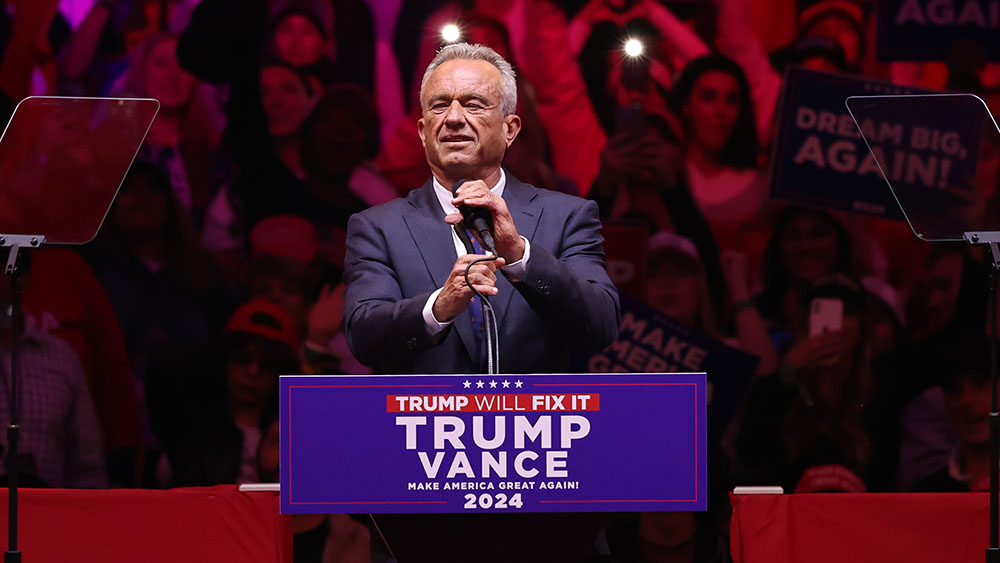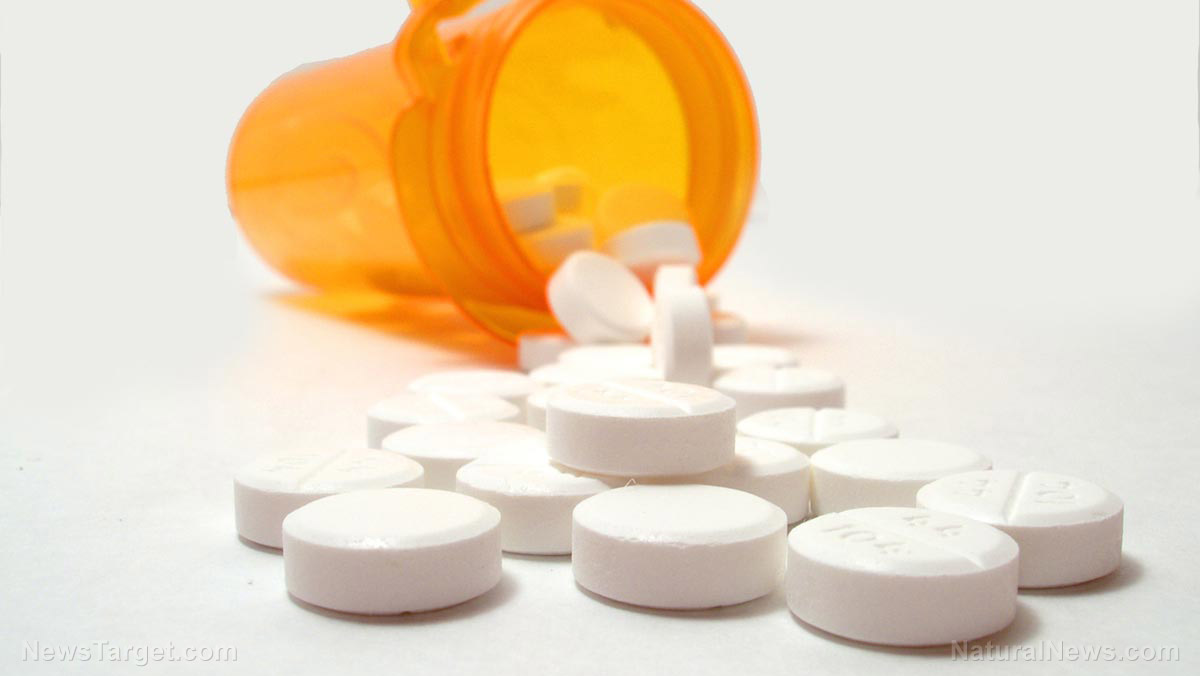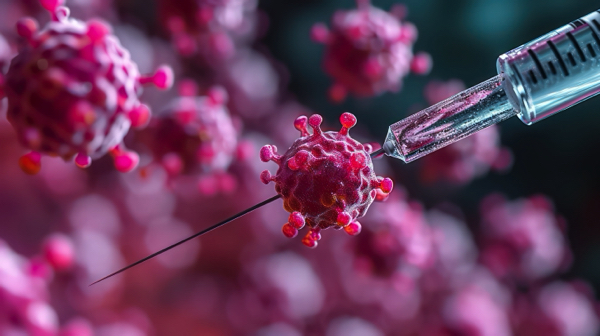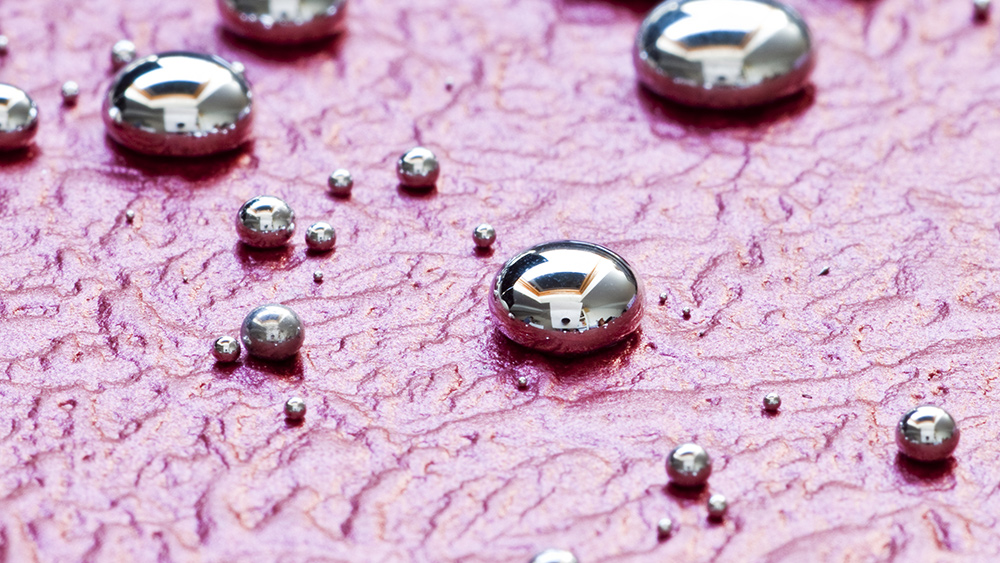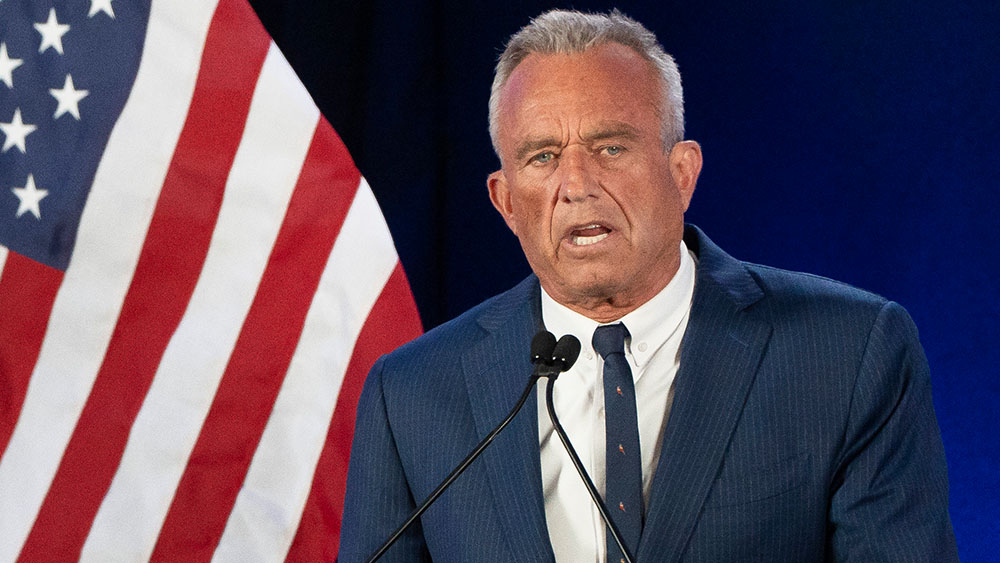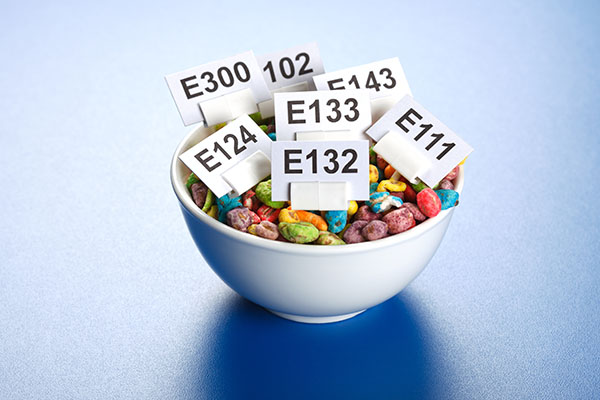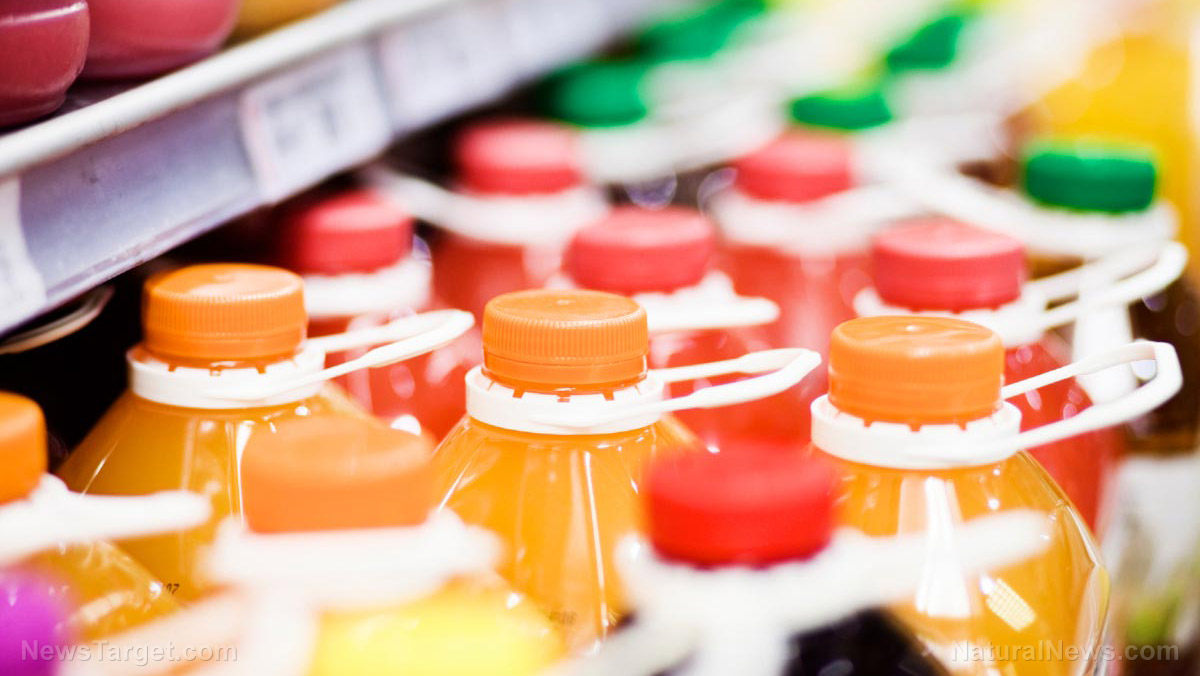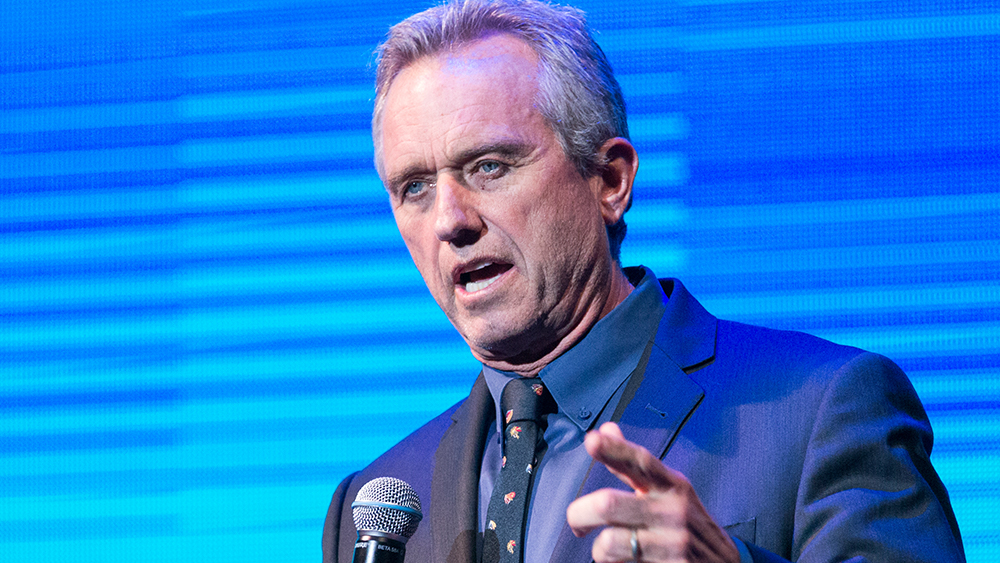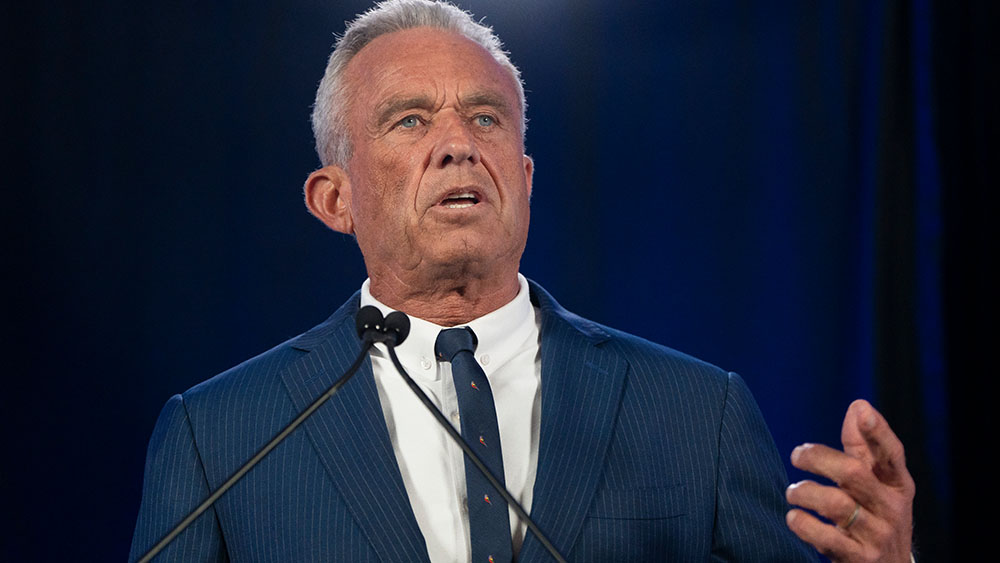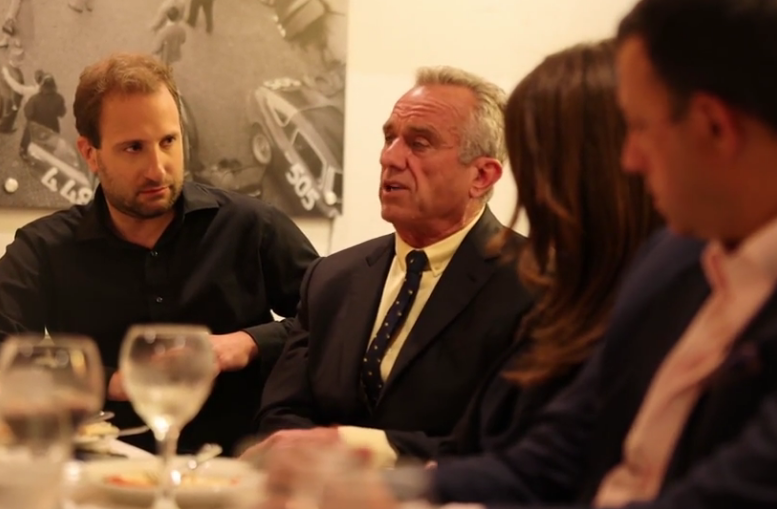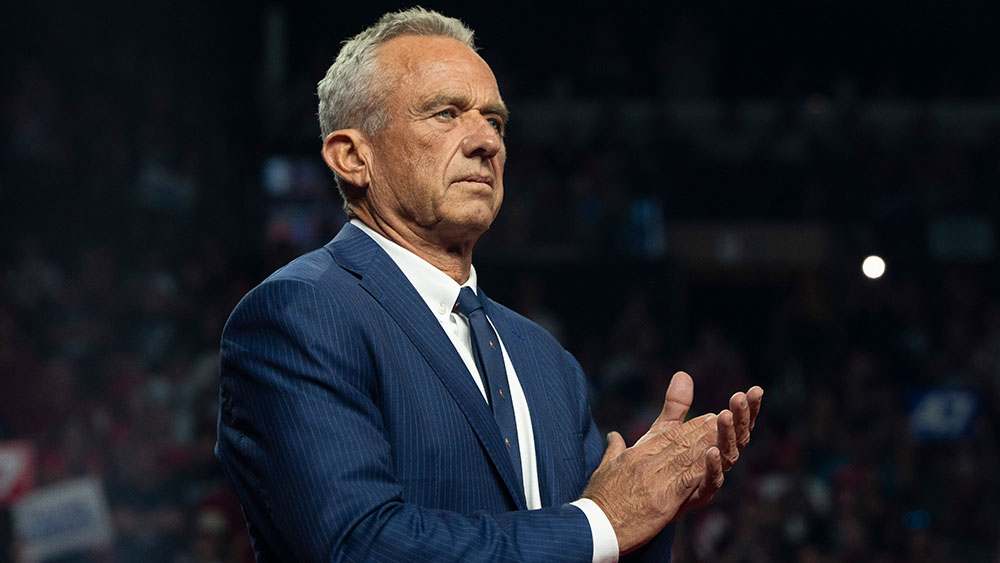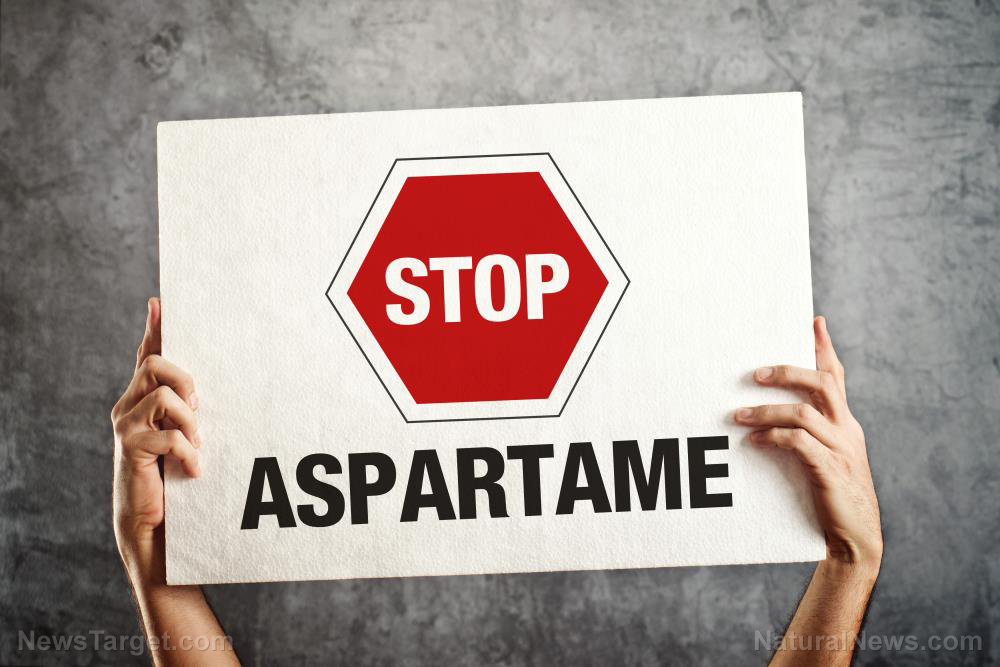RFK Jr. gives food companies two years to remove harmful artificial dyes
04/10/2025 / By Cassie B.
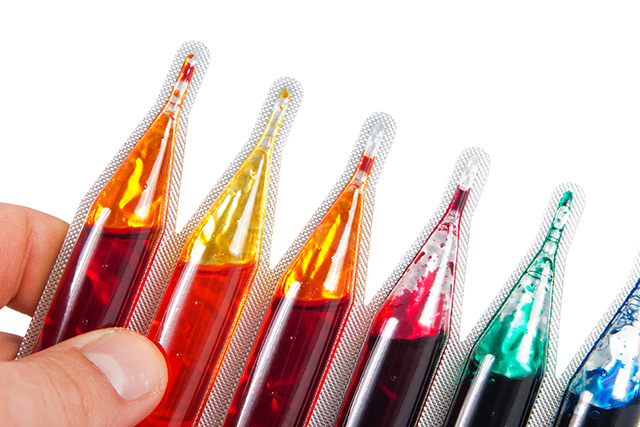
- Kennedy orders food companies to remove artificial dyes like Red 40 within two years or face penalties.
- He exposed private talks with major brands and criticized corporate influence on FDA policy.
- Critics warn synthetic dyes cause ADHD and cancer, with stricter bans already enforced in Europe and some U.S. states.
- Kennedy plans to close the GRAS loophole, forcing stricter federal oversight of food additives.
- Industry resists due to cost and consumer preference, but Kennedy’s ultimatum signals the end of voluntary compliance.
In a sweeping move to protect American families from dangerous chemicals, U.S. Health Secretary Robert F. Kennedy Jr. has issued an ultimatum to major food corporations: Remove artificial dyes like Red 40 from products within two years or face regulatory consequences.
Kennedy, a staunch advocate for public health reform, disclosed details of a private March 10 meeting with executives from PepsiCo, Kraft Heinz, General Mills, and other industry giants in an April 9 interview with CBS. His directive marks a turning point in federal food safety policy, challenging decades of corporate influence over the FDA and aligning with the Trump administration’s “Make America Healthy Again” agenda.
A long-overdue crackdown on food additives
For years, activists and scientists have warned that synthetic food dyes—common in candies, cereals, and sodas—are linked to hyperactivity in children, neurological disorders, and even cancer. Yet regulatory inertia and lobbying pressure have kept these chemicals on the market. Kennedy, who has long fought against environmental toxins, is now wielding federal authority to force change.
“They’re clearly associated with a grim inventory of diseases, including cancers and behavioral disease and neurological disease like ADHD,” Kennedy said in the CBS interview. “In many cases, the same products in this country have those dyes, and then they use vegetable dyes in Canada, Mexico and Europe.”
The corporate response has been mixed. While PepsiCo acknowledged the meeting as “productive,” critics argue the industry has dragged its feet for too long. Kennedy, however, made it clear: The grace period is ending. “They all have to be out within two years,” he said.
Corporate resistance and FDA failures
The FDA, historically slow to act on food safety concerns, has been accused of being “captured” by industry interests. Kennedy exposed how lax regulations—particularly the Generally Recognized as Safe (GRAS) standard—have allowed thousands of untested chemicals into the food supply.
“In Europe, before you add something, a chemical, to a food, you got to prove that it’s safe. In our country, it is rubber-stamped,” Kennedy said, noting that while Europe permits only 400 food additives, the U.S. allows nearly 10,000.
State governments have already taken matters into their own hands. California banned artificial dyes from school lunches, and West Virginia recently removed seven synthetic food colorings from state-regulated products. Now, Kennedy is moving to eliminate the GRAS loophole entirely, ensuring federal oversight over additives.
The economic and cultural stakes
Corporate pushback centers on cost and consumer preference. A PepsiCo executive reportedly told Kennedy that replacing artificial dyes is challenging because consumers “like them to be very red.” But health advocates argue this prioritizes profit over safety.
“We share a commitment to ensuring America’s food system is the best in the world,” a PepsiCo spokesperson said in a carefully worded statement. Yet Kennedy’s ultimatum leaves no doubt: The era of voluntary compliance is over.
The Consumer Brands Association, representing Big Food, cautiously pledged collaboration. But Melissa Hockstad, the group’s CEO, noted Kennedy’s intent to “take action” if the industry fails to act proactively.
A new chapter for American health
This crackdown is just one part of Kennedy’s broader agenda. He has also pushed fast-food chains to abandon harmful seed oils in favor of traditional fats like beef tallow—a nod to pre-industrial food production. His actions signal a return to commonsense, natural nutrition, free from corporate manipulation.
The long-term impact could be monumental. Studies suggest that eliminating synthetic dyes may reduce childhood behavioral disorders and lower cancer risks. By holding corporations accountable, Kennedy is fulfilling a promise to put American families first.
For too long, U.S. food safety standards have lagged behind the rest of the world. Kennedy’s mandate is a watershed moment, proving that strong leadership can break through bureaucratic and corporate obstruction. As the two-year deadline looms, food companies must choose: Innovate or face consequences. One thing is certain—America’s diet is about to get a lot cleaner.
Sources for this article include:
Submit a correction >>
Tagged Under:
artificial dyes, awakening, Big Food, clean food watch, FDA, food dyes, food safety, food supply, grocery, progress, RFK Jr, toxins
This article may contain statements that reflect the opinion of the author
RECENT NEWS & ARTICLES
COPYRIGHT © 2017 FDA NEWS

